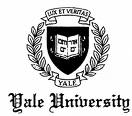Hello everyone! Today was a very successful day. Not only was I able to complete another book (On War by Carl Von Clausewitz), but I also was able to meet up with Stephanie at Barnes and Nobles. Since Matt was out of town and Yohanna just got back from New York, the two of us decided to get together, especially after our struggles with reading the book (explained below).
Our time at Barnes and Noble was well spent. We first concentrated on securing our laptops using the handy security cable supplied by the wonderful Mr. Gosney. It was fun getting a chance to examine our new "gadget". At first, we struggled with them, and got scared because Stephanie's cable took come fidgeting before it finally came out; but in less than fifteen minutes, we were both confident that our computers would be safe and secured.
Then, Stephanie and I discussed a little about the book we both had just completed, On War. We agreed that this book was by far the hardest to grasp. Not only were the words really complex, but the sentences were also very long. That became a huge problem for me (as much as pronouncing foreign names). Many sentences were full of commas and dashes that I eventually lost track about what it was saying and would have to re-read it in a slower pace. Besides those difficulties, as the title clearly states, Clausewitz's book was about War. He first starts by his own definition of War, which I thought was very interesting: "War...is an act of violence intended to compel our opponent to fulfil our will" (by the way, fulfill was actually spelled like that). He states that the "true object of combat" is to destroy the enemy and his force. In addition, he believes that the strength of forces come physically and morally; and "whoever at the close has the greatest amount of both left is the conqueror." Part of the book also had to do with the art of warfare (also said to be the "Conduct of War"). One sentence that resembled Sun Tzu's writing was that there are ways to conquer the enemy in War without having to fight. Finally, at the end of the book, there is a small conclusion about Clausewitz's writing. Here it says that Clausewitz has showed us that states should not go to war without a reason to do so. His "greatest achievement" from this book was "in having made people aware of the way war can be used as an arm of national policy."
After reading On War, I was certain that we would be hearing about it a lot at Yale. I am glad that Stephanie and I had the time to meet up and hope that next time, the four of us will be able to discuss all of the books. My next book is The Rise and Fall of Great Powers, by Paul Kennedy. I will blog once more when I have completed it. Bye for now!
Tuesday, July 14, 2009
Subscribe to:
Post Comments (Atom)





Jessica,
ReplyDeleteI don’t want to be repetitive so I invite you to read my comments to Stephanie’s blog about On War.
When an author pens a book they have to ask themselves who their target audience might be. If they want their book to be read by only a few people and perhaps the students you’ve assigned it to, then go ahead and write it so the language is confusing and the structure makes it onerous to read. But if you want it to be on the NYT Best Seller list, then maybe you might want to listen to your editor and work on HOW it’s written. It sounds like Clausewitz could have used a better editor.
Considering his structure and the ‘typo’ you mentioned, it almost suggests that he had this printed himself in something akin to a vanity press.
I wish that one of these authors would expound on the concept that war itself is not the greatest weapon. The greatest weapon is the THREAT of war. Is the world really afraid of what North Korea might be able to do in the event of war? No. But because they often come across as the epitome of goofy and irrational, and they have nuclear devices, the THREAT of war is where they garner their strength.
You’re getting a great education, Jessica, for someone your age. It makes me want to reconsider going to war against the four of you. You KNOW too much, now. With all of these books you’ve been reading, though, Dr. Dr. Luong left out the most valuable book on war and the strategy for winning: The Godfather by Mario Puzo. The movie was great but the book is the playbook for being a man and winning your wars. A ‘must read’.